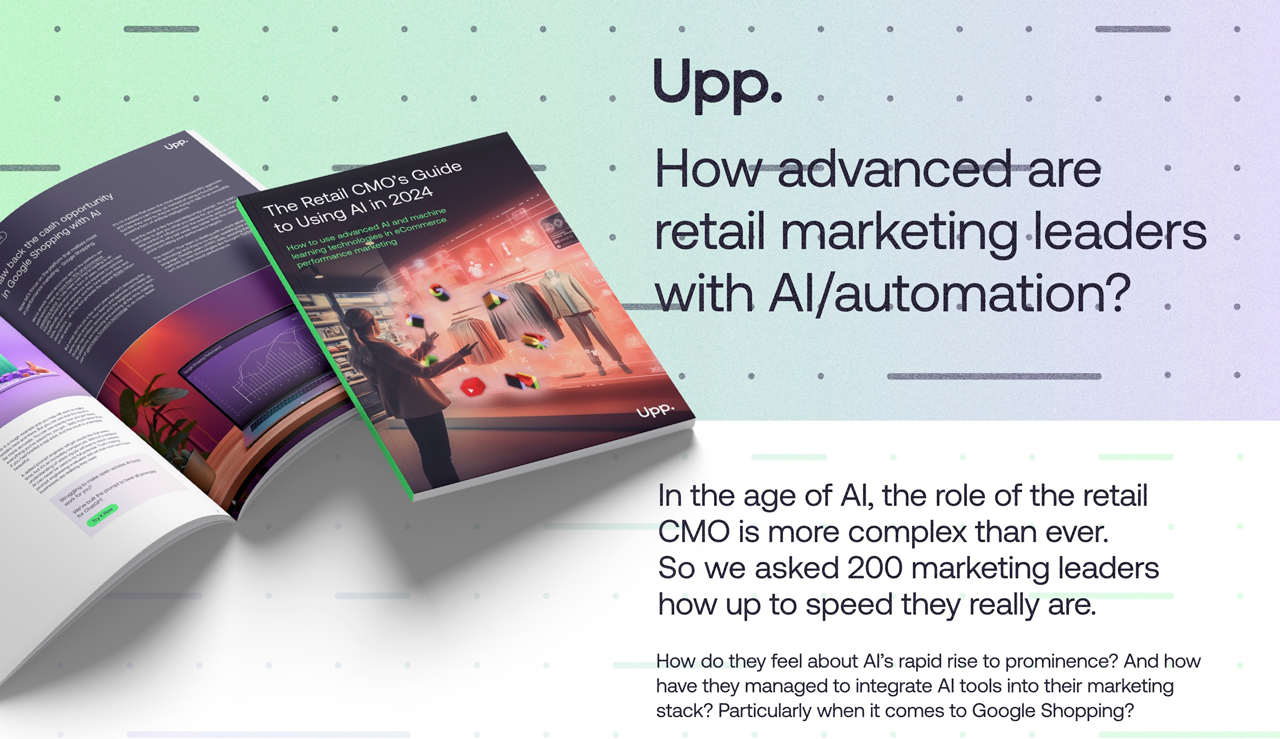The power of adaptive AI in a data-driven world
Drew Smith, CPO and Co-founder, Upp.ai
The power of adaptive AI in a data-driven world
Modern ecommerce marketing faces the challenge of shifting from correlation-based assessments to understanding the causation behind performance metrics. Adaptive AI addresses this by continuously analysing demand, competitor actions, market conditions and consumer behaviour. This technology employs sophisticated algorithms and machine learning models to uncover the root causes of market shifts, providing actionable insights and making real-time adjustments to marketing programmes, ensuring businesses remain competitive.
For example, most modern retailers use pricing algorithms to compare their product prices with competitors. However, understanding the causal impact of being cheaper is often missing. Does a lower price guarantee more customers or are other factors at play? Adaptive AI uses advanced statistical techniques and causal inference models to answer these questions, focusing on causation rather than mere correlation.
We are witnessing a significant shift from a creative approach to a mathematical one in paid media. The sheer volume of data points and vectors of information creates a compounding problem. With many factors influencing performance, achieving optimal results through insights alone is impossible.
Automation is essential to adapt to these complexities. Adaptive AI enables marketers to respond to constant market changes and optimise real-time campaigns. Leaders who swiftly adopt adaptive AI can leverage these causal insights to fine-tune strategies, enhance targeting and maintain a competitive edge in a constantly evolving landscape. In a data-driven world, adaptability is crucial for sustained success.
Time to make adaptive AI pay
Retail, both in the UK and globally, has transformed rapidly in recent years from a business primarily focused on real-world interactions to one led by technology. The latest stage of the industry’s digital acceleration is coming from the adoption of artificial intelligence technologies.
One specific branch of AI technology that is able to learn and change its behaviour as it performs tasks – known as ‘adaptive AI’ – is being implemented by some of the UK’s most cutting-edge retailers.
Adaptive AI presents a major opportunity for businesses able and willing to research and adopt similar techniques. It is also a challenge, demanding the rapid acquisition of new skills and judicious investment. But for those retailers willing to take on the challenge, there are clear benefits.
“There’s quite a big gulf that’s emerged between retailers who really understand the technology, who see the potential benefits that it can offer, and those that don’t,” says Richard Lim, chief executive of consultancy Retail Economics, on the changes he’s seen in AI adoption over the last 18 to 24 months within the UK retail sector.
“So, you’ve got a really uneven landscape across the industry,” he says, with some businesses “really leaning into this kind of technology” while others fall behind.
“The next wave of digital acceleration is coming from AI technologies and I can only see that gulf widening, between those that are really embracing it and those that are not.”
Speaking to the mindset of those slow adopters, Lim says the very real risk of pitfalls and unintended consequences is, in some cases, combining with resistance to change, fear and lack of resources, holding back those retailers.
This report aims to be a guide to best practices for adopting adaptive AI, looking at some of the most inspiring examples in UK retail today.
We deep-dive into 10 of the UK’s best AI-powered retailers and their winning ways, to help businesses make informed decisions regarding their own tech investment strategies. We also feature the unique insights of industry leaders and experts we interviewed.
Who we spoke to for AI insights
Paula Bobbett
Boots,
Chief Digital Officer
Richard Lim
Retail Economics,
Chief Executive Officer
Luke Dickens
University College London,
Lecturer in Machine Learning
Jo Drake
The Hut Group,
Chief Information Officer
Lynn Beattie
B&Q,
Technology and Product Director
Paul Hornby
The Very Group,
Digital Customer Experience Director
Drew Smith
Upp.ai,
CPO and Co-founder
Darshan Chandarana,
PwC UK emerging technology lead
PwC UK,
Emerging Technology Lead
Owen Eddershaw
True Global,
Innovation Associate
Lisa Byfield-Green
Retail Week,
Data and Insights Director





